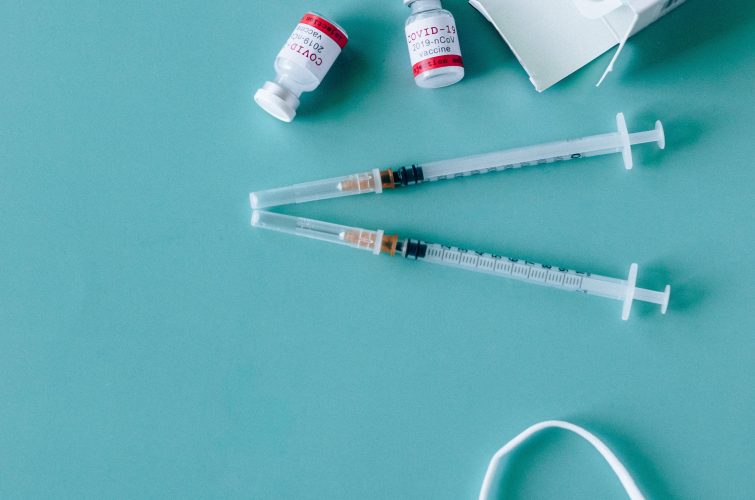
The COVID-19 vaccine made by Pfizer-BioNTech is an mRNA vaccine that that can help prevent people becoming ill from COVID-19. The vaccine does not contain any live vaccine; it contains a small part of the virus which when injected into a person basically gives instructions to the body to make the “spike protein” that is unique to this virus. With this information, the immune system then works to create antibodies (fighter cells) against the COVID-19 virus. This means that if you do become infected with COVID-19 your body already has an army at the ready to fight quicker and stronger against the virus. The aim of vaccination at this point is to not only reduce infection rates but to reduce the number of people with severe illness from the virus, hospitalisations and death.
The efficacy of the Pfizer vaccine has been reported to be up to 85% after 1 dose. In saying that to be fully effective the vaccine requires 2 doses. Protection against COVID 19 starts about 2-3 weeks after the first vaccination; 1 dose may only give protection short term. The second dose will give longer lasting protection. At this stage we do not know exactly how long protection will last for – we will learn more about this with time.
It is worth commenting on the terms used when talking about how “good” a vaccine is. The term “efficacy” relates to how well the vaccine does its job in a laboratory environment; “effectiveness” is the term used to describe how well it performs in the real world. While it is important that vaccines are developed that have good efficacy; effectiveness or how they perform in the real world is obviously what we are really after and studies so far are showing excellent results for both the Astra Zeneca and the Pfizer vaccines.
Common side effects include:
Less common side effects include:
Anaphylaxis is an important and rare side effect. If you have had anaphylaxis or a severe reaction to the Pfizer vaccine it is advised not to get the vaccination again. In addition, if you have had anaphylactic reaction to any component in the vaccine it should also be avoided.
Remember you will be receiving your vaccination in a medical facility with staff that are well trained to deal with an emergency. We ask anyone receiving a vaccination to remain in the facility for 15-30 minutes after so appropriate care can be provided if necessary.
The Pfizer vaccine is the preferred vaccine for Australians under 50 years old. It is currently available for under 50s who are in Phase 1a and 1b and will roll out to others soon. The exciting news for the Central west is that it is now available here at Orange Health Service. To check your eligibility and register your interest to receive the Pfizer vaccination the best way is to go to health.gov.au and follow the links. You can also phone Healthdirect on: 1800571155.
Vaccination against COVID-19 with the Astra Zeneca (over 50s) or with Pfizer (under 50s) remains the BEST way to prevent severe illness and death from COVID-19. It also has indirect benefits for the community. As we are now seeing with the outbreak in Melbourne the risk of further outbreaks is ever-present because the Australian population remains largely unimmunised and therefore susceptible to COVID-19.
During this time It is still important to continue other preventative measure which we have developed since the pandemic started. This includes physical distancing, wearing a face mask, hand washing and of cause getting tested if you have any COVID- 19 symptoms. This includes a sore throat, runny nose, fever and a dry cough. It does not matter if you have not been anywhere; it just takes 1 person travelling through our community who is carrying the virus to begin the spread here. Be responsible people.
Current Pfizer Hubs (NSW):
References:
1.About the Pfizer/BioNTech COVID-19 vaccine | Australian Government Department of Health
2. Pfizer-BioNTech COVID-19 Vaccine Overview and Safety | CDC
3. The Facts About the Pfizer-BioNTech COVID-19 Vaccine | pfpfizeruscom
4. RACGP – Evidence suggests AstraZeneca and Pfizer are equally effective
5. Vaccines Eligibility Checker (healthdirect.gov.au)
6. Covid-19 Vaccine rollout phases – When will I get a COVID-19 vaccine? | Australian Government Department of Health